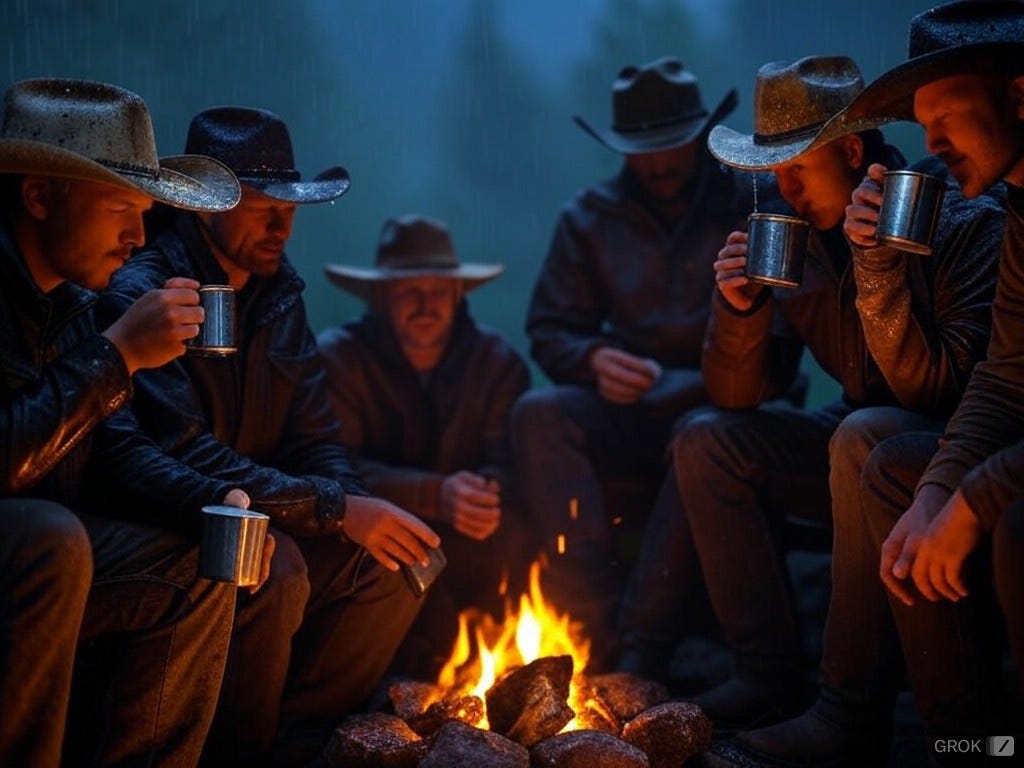Battle for the Real
The courage to choose being.
John Senior had the courage to choose the real—and he helped his students choose it amid a world that constantly called them to engage with the artificial. He saw the splendor of values that existed in drinking a cup of coffee:
"The immediate (practical) purpose of drinking a cup of coffee is to wash the biscuit down,” he wrote. “Its proximate (ethical) purpose is the intimate communion of, say, cowboys (they do exist; Will James was right!) standing around the sullen campfire in a drenching rain, water curling off Stetsons, over slickers, splashing on the rowels of spurs, as they draw the bitter liquid down their several throats into the single moral belly of their comradeship. The remote (political) purpose of coffee at the campfire, is the making of Americans—born on the frontier, free, frank, friendly, touchy about honor, despisers of fences, lovers of horses, worshipers of eagles and women. . . . The ultimate purpose is spiritual. For a boy to drink a can of coffee with cowboys i…




